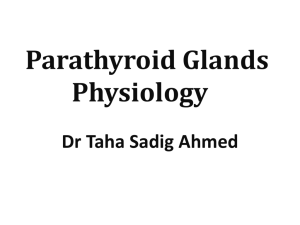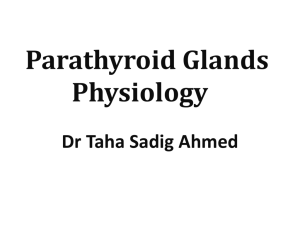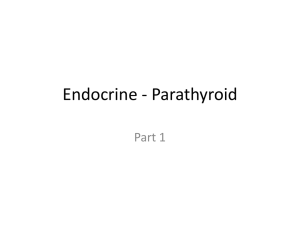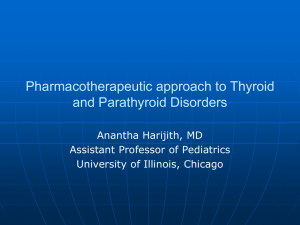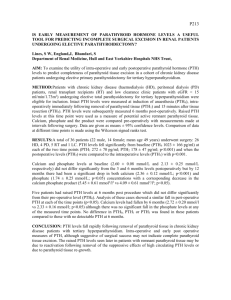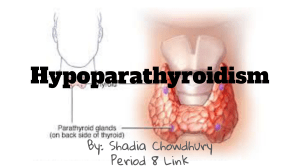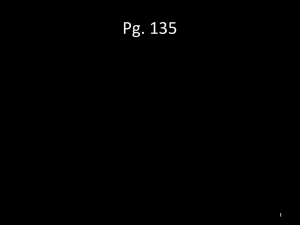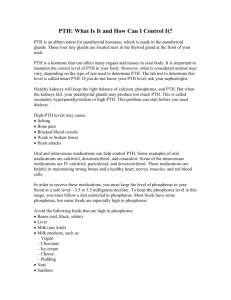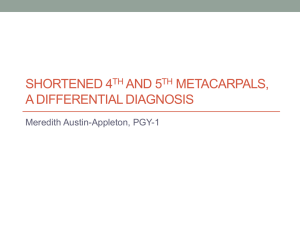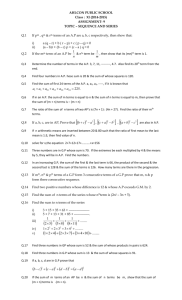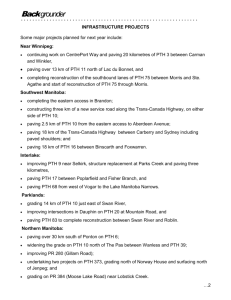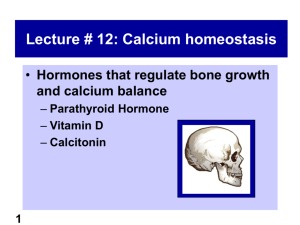Lecture 9
advertisement
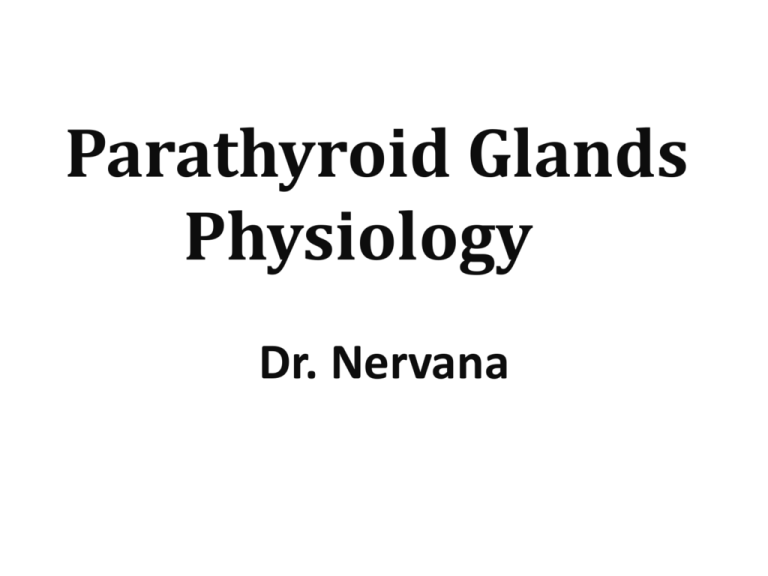
Parathyroid Glands Physiology Dr. Nervana • Four glands located on the posterior surface of the thyroid gland. • Secrete the polypeptide hormone PTH. • Decreased blood level of Ca++ stimulates the Parathyroids to secrete PTH. Regulation of PTH secretion • Secretion of PTH is inversely related to plasma [Ca2+] because • Plasma Ca2+ level is the dominant regulator of PTH secretion : • Plasma Ca2+ level < 3.5 mg/dL stimulates PTH secretion • Plasmna Ca2+ level > 5.5 mg/dL inhibits PTH secretion Effects of PTH Increase blood Ca++ Decrease blood Phosphate Effects of PTH Hypoparathyroidism • Causes (1) Abnormal parathyroid gland Reduced or absent synthesis of PTH (2) Inadvertent (by mistake) removal of parathyroid gland during thyroid surgery This may lead to Tetany (increased excitability & hypersensitivity of nerves and muscles ) . • Hypoparathyroidism is associated with hypocalcemia , but hypocalacemia can also accompany severe Vit D deficiency . Signs & Symptoms of Hypoparathyroidism • Positive Chvostek’s (facial muscle twitch) sign • Positive Trousseau’s (carpal spasm) sign • Delayed cardiac repolarization with prolongation of the QT interval • Paresthesia • Tetany HYPO PARATHYROIDISM • Tetany can be overt or latent can be tested by : Chvostek’s sign: Tapping the facial nerve as it emerge from the parotid gland in front of the ear causes contraction of facial muscles. Trousseau’s sign : Arresting (stopping ) blood flow to the forearm for for minutes ( e.g., by sphygmomanometer ) causes flexion at the wrist, thumb and metacarpophalangeal joints. Carpopedal spasm : sign of tetany Hyperparathyroidism • Adenoma ( tumor ) of parathyroid gland excessive PTH secretion: Hypercalcemia results from combined effects of increased : (1) bone resorption. (2) intestinal and renal calcium absorption. Features of Hyperparathyroidism • Kidney : polyuria , polydipsia , renal stones. • Bones : Rickets or osteomalacia , osteitis fibrosa cystica (soft bones with cyst formation: in picture arrows point to cysts ) • GIT : nausea , vomiting , indigestion , constipation , peptic ulcer , pancreatitis. • Musculoskeletal : proximal muscle weakness • CNS : depression, memory loss, psychosis, coma
